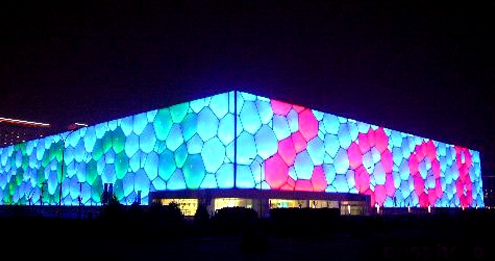It's been one year since Beijing hosted the Olympic Games. So what's happened to the sports venues since then? Most of the venues are opened to the public, but they're not finding it easy to balance their budgets.

This is the Olympic badminton training venue at the Beijing University of Technology. It opened to the public at the end of last year. Now, half of the players are enthusiastic amateurs.
Wu Yunfei, Beijing resident, said, "Before the Olympics, Beijing did not have enough sports venues. I hope the Olympic venues can make it easier for us to play."
Liu Jianping is the managing director of the venue. She's grateful the Olympics have left her university with a practical legacy. Along with the Olympic parks, these facilities make it easier for people to enjoy sports.
Liu Jianping, managing director of Sports Venue of Beijing University of Tech., said, "We attach importance to the social benefits of the venue. But we have to run it economically to reduce the financial burden."
Liu Jianping says the problem is entrance fees don't cover all the costs. They need commercial activities to make up their losses.
36 venues were either purpose-built or renovated for the Beijing Olympics. Various companies, government organizations and universities now operate them. One year after the Games, a few with little commercial value have to be dismantled, but the great majority of them have multi-functional uses aside from sports. How to make these facilities pay for themselves meeting the demands of the local residents becomes a top priority for the operators.